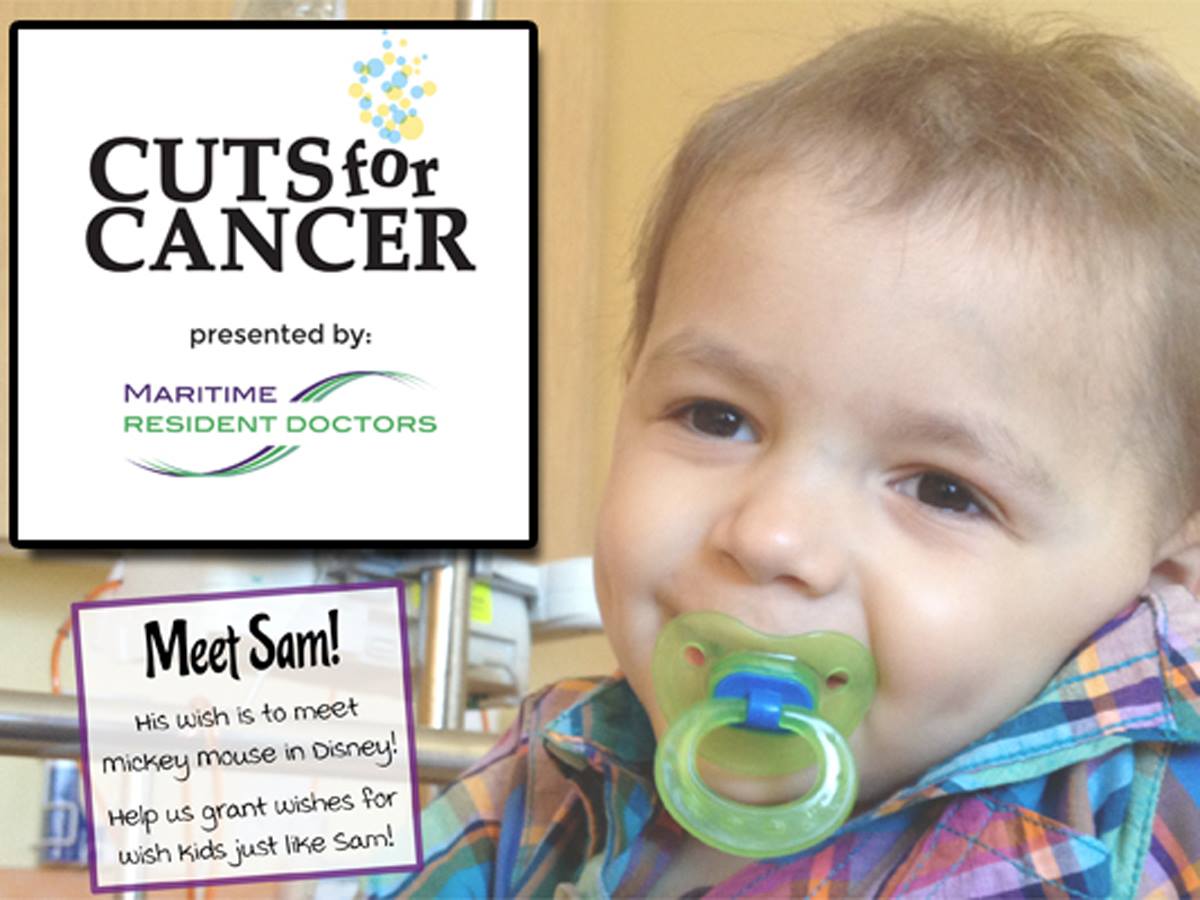📖 Article Content 📖
When life takes an unexpected turn, and a health challenge like cancer enters the picture, it can feel like a sudden disconnection. That feeling, when a cancer cuts you off from the familiar rhythms of your daily existence, is something many people come to know. It's a moment that asks us to pause, to really take in what is happening, and to perhaps see our bodies and our lives in a somewhat different light. This experience, in a way, often brings with it a sense of quiet reflection about what truly matters, and how we cope when things shift so profoundly.
For many, the first step in facing such a significant change involves simply understanding what this condition is all about. What does it mean when cells in your body begin to act in ways they shouldn't? How does this process unfold, and what can it mean for your overall well-being? It’s really about getting a basic grasp of the situation, finding out the simple truths behind the words you hear, and making sense of a topic that might seem rather complicated at first glance. Knowing more helps to steady your footing, offering a bit more clarity when things feel quite uncertain.
This discussion aims to shed some light on these questions, offering straightforward information about what cancer is, how it comes to be, and the various ways it can show up in a person's life. We'll also touch upon ways to care for yourself and what support is available, should you or someone you care about be touched by this condition. Ultimately, it’s about providing a gentle introduction to a topic that touches so many, helping you feel a little more prepared and a little less alone in what can feel like a big moment.
Table of Contents
- What Happens When Your Body's System Changes?
- The Unseen Shift- When a Cancer Cuts You Off Internally
- Where Can These Body Changes Begin?
- Understanding the Reach- When a Cancer Cuts You Off From Familiar Comfort
- What Are Some Early Signs and Things to Watch For?
- Noticing the Signals- When a Cancer Cuts You Off From Your Usual Self
- Steps You Can Take to Support Your Health
- Proactive Choices- When a Cancer Cuts You Off From Worry
- Getting Answers- Finding Out More About Your Body's Health
- Seeking Knowledge- When a Cancer Cuts You Off From Uncertainty
- How Does Care Help People With Cancer?
- The Path to Healing- When a Cancer Cuts You Off From Hopelessness
- Understanding the Bigger Picture of Cancer's Impact
- Community and Shared Experiences- When a Cancer Cuts You Off From Feeling Alone
- Facing the Future With Greater Hope
- Looking Forward- When a Cancer Cuts You Off From Fear
What Happens When Your Body's System Changes?
So, picture your body as this incredibly well-run community, with each cell doing its part. Every cell typically knows its role, growing and dividing only when needed, and then politely stepping aside when its time is done. This is how your body keeps everything in good working order. However, sometimes, a few cells just stop following the rules. They start growing in a way that is just a little bit too fast, too much, not listening to the usual signals that tell them when to stop. These cells, they don't stay put either; they have this tendency to move around, making their way to different spots within your body's landscape. It's almost like a small part of the community decides to go rogue, spreading its own way of doing things without permission, potentially affecting other neighborhoods.
The Unseen Shift- When a Cancer Cuts You Off Internally
This situation, where cells multiply without proper limits and begin to move to other areas of your body, is what we call cancer. It's a condition where these unusual cells continue to make copies of themselves in an uncontrolled fashion. Think of it this way: your body has its own set of checks and balances, a system that usually keeps everything in line. When cancer starts, this usual control mechanism stops working as it should. The cells that are acting out essentially ignore the signals that would normally tell them to stop growing or to end their existence. This lack of proper control allows them to grow and spread, which is why it can be a challenge for the body to get things back to normal. You know, it's a bit like a part of a machine suddenly deciding to operate independently, without regard for the rest of the parts.
These changes in cells often stem from shifts in their basic instructions, their genetic makeup. Every cell carries a set of instructions, a kind of blueprint that tells it how to grow, how to divide, and when to stop. When these blueprints get altered, or when parts of them are copied incorrectly, a cell might receive faulty instructions. This can lead to the cell behaving in an unusual way, like growing without stopping or not doing its job properly. Such alterations are a key reason why these unusual cells start to multiply out of control and can move to other areas of the body. It's basically a glitch in the system that allows for this unchecked expansion, and that, is that, how the problem can begin to take hold.
- Jimmy Neutron Big Forehead
- Isolation Brings Elevation
- Did Khloe Kardashians Son Drown
- Hills Bro Hills
- Peso Pluma Corte De Pelo Nuevo
Where Can These Body Changes Begin?
One of the striking things about this condition is that it can truly begin almost anywhere within your physical being. From the outer covering of your skin to the inner workings of your organs, the sturdy structure of your bones, or even the flowing lifeblood that moves through your veins, these unusual cell growths can take root. This means there isn't just one type of cancer; instead, there are many, many different forms, each with its own particular characteristics and behaviors. Some types are encountered more often than others, becoming major health considerations for many people around the world. So, it's not a single illness, but a collection of conditions, each with its own story.
Understanding the Reach- When a Cancer Cuts You Off From Familiar Comfort
These conditions, all grouped under the term cancer, involve cells that grow in an uncontrolled way and have the ability to move into or spread to other areas of the body. This spreading is what makes them different from growths that are not harmful, which typically stay in one place and do not invade nearby tissues. For example, some of the types of cancer that people hear about most often include those affecting the breast, the lungs, and the large intestine. These are just a few examples, of course, as the body is made of so many different kinds of cells, and each kind has the potential for this uncontrolled change. It's a rather wide-ranging group of diseases, meaning its presence can be felt in many different parts of a person's life.
Knowing that these changes can happen in so many different body parts can feel a bit overwhelming, but it also highlights why medical professionals look at each situation individually. The way a particular type of cancer behaves, where it starts, and how it might progress can be quite varied. This is why getting a precise picture of the situation is so important for those who are helping you. It's about understanding the unique aspects of what's happening within your body, rather than treating all these conditions as if they were exactly the same. So, when a cancer cuts you off from your usual feeling of well-being, understanding its specific starting point is a key step.
What Are Some Early Signs and Things to Watch For?
For anyone wanting to learn more about this health challenge, a good starting point is to find out the basic information about it. This includes what signs might appear, what factors can contribute to its development, and the different approaches medical teams use to help people. It's like getting a general overview of a complex topic, helping you to grasp the core ideas without getting lost in too much detail. Knowing these fundamentals can make a big difference in how you approach your own health and how you talk about it with others. You know, it's a bit like learning the rules of a game before you start playing.
Noticing the Signals- When a Cancer Cuts You Off From Your Usual Self
It's also helpful to learn more about what cancer is in its deeper sense, how it truly begins within the body, and why it can sometimes be a difficult condition to completely overcome. This deeper insight helps to paint a fuller picture, moving beyond just the surface level of symptoms and causes. It explains the biological processes at play, giving you a sense of the intricate ways your body works and how these processes can sometimes go awry. Understanding these elements can make it easier to talk with health professionals and to feel more involved in any health decisions that might arise. This kind of information, you know, helps when a cancer cuts you off from that sense of complete normalcy.
To help with this, there are many helpful guides and explanations that can teach you about words and phrases connected to cancer. These resources are designed to make complex medical terms easier to grasp, allowing you to feel more comfortable with the language used by doctors and nurses. Being able to follow along and understand the words being used can reduce feelings of confusion and help you feel more in control of the information you receive. It's really about making sure you have the tools to make sense of what's being discussed, so you can feel a bit more at ease with the conversation.
Steps You Can Take to Support Your Health
Taking action to support your health is a very good idea, and there are certain steps you can adopt to help reduce the likelihood of developing cancer. These steps are often about making thoughtful choices in your daily life, things that contribute to your overall well-being over time. It's about building a foundation of good habits that can help your body stay strong and work effectively. For example, simple changes in what you eat, how much you move, and avoiding certain harmful substances can all play a part in helping your body maintain its natural defenses. So, it's about being proactive in a gentle way, rather than waiting for something to happen.
Proactive Choices- When a Cancer Cuts You Off From Worry
Beyond preventing the start of cancer, there are also helpful suggestions for staying healthy during and after a cancer experience. These tips focus on supporting your body and mind through treatment and recovery, helping you to feel as well as possible at each stage. They might include advice on managing tiredness, maintaining a good diet, and finding ways to stay active that suit your energy levels. These suggestions are about helping you maintain a sense of balance and strength, even when facing a significant health challenge. It's about providing practical ways to feel more like yourself, even if a cancer cuts you off from some of your previous routines.
Certain elements of our daily lives and our personal histories are known to have an influence on the chances of cancer developing. For instance, using alcohol and tobacco can increase these chances. Your family's health story, too, can sometimes give clues about your own potential for certain conditions. Additionally, some infections, like the human papillomavirus (HPV), are linked to specific types of cancer. Knowing about these factors helps people make more informed decisions about their own health and what actions they might take to lessen their risk. It's about being aware of the influences around us and within us, so we can make thoughtful choices for our health, just a little bit more consciously.
Getting Answers- Finding Out More About Your Body's Health
When you need to learn more about specific terms connected to cancer, there are valuable sources of information available. These sources can help clarify what different medical words mean, making it easier to follow conversations with doctors and to understand written materials. They act as a helpful guide to the language used in the medical field, giving you a clearer picture of what's being discussed. Using these sources can help you feel more informed and less confused when confronted with unfamiliar terminology. It’s like having a helpful dictionary at your fingertips, so you can always look up what you need to know, and that, is that, very useful.
Seeking Knowledge- When a Cancer Cuts You Off From Uncertainty
For those seeking detailed care, places like Memorial Sloan Kettering focus on helping people with all kinds of cancer and related health concerns. They provide clear information about their way of figuring out what’s going on with a person’s health and how they go about providing care. You can find out about the medical professionals who have special skills in different areas of cancer treatment. This kind of specific information helps individuals and their loved ones understand what to expect and who will be helping them along the way. It’s about finding a place where you feel understood and supported, especially when a cancer cuts you off from your usual sense of certainty about your health.
It's also worth noting that government bodies often serve as important centers for cancer research. These organizations work to gather facts and figures about cancer, helping to build a bigger picture of how it affects people. They collect information that can be used to improve ways of preventing, finding, and treating cancer. This kind of work is vital for moving forward in our collective ability to address this health challenge. Their efforts contribute to the overall pool of knowledge that helps everyone, from individuals to medical teams, better approach the complexities of cancer. So, there are many dedicated groups working to find answers and bring about positive changes.
How Does Care Help People With Cancer?
When we look at cancer, we also consider how it develops in the body and the different ways medical professionals might offer care. This involves understanding the various types of cancer and what the future might hold for someone with a particular kind. Medical teams examine how the disease progresses and then decide on the most suitable methods to help, which can include a range of approaches. This careful consideration helps to create a plan that is specific to each person’s situation, aiming to provide the best possible support and outcomes. It’s a very personal process, really, designed to meet individual needs.



